Why can't I lose weight? 19 reasons why your diet isn't working, according to the experts


If you're wondering 'why can't I lose weight?' after trying out a new diet or exercise plan then don't worry - you're certainly not the only one.
The average person will try 126 different diets over the course of their lifetime, a 2020 poll found, and will only last six days on the plan before giving up. While the data concluded that the diets least likely to last were the famously 'fad diets' like the cabbage soup diet, our experts say that even if you manage to choose one of the diets that work alongside a good exercise regime, losing weight can be a harder process than you think.
Luckily however, the struggle will nearly always come from a mismatch of habits that are easy to pinpoint. If you're struggling with losing weight, this is what you need to know.
Why can't I lose weight?
Weight loss issue #1: You're not in a calorie deficit
Ultimately, to lose weight you have to be in a calorie deficit. Shelli Epstein, personal trainer at F45 Mill Hill, explains that "this is when you eat less calories than your body expends."

"We are all different and come in all different shapes and sizes, meaning we all burn and need to consume different amounts of calories in a day. If your body naturally burns 'x' number of calories a day, if you exercise or have an active job, your daily calorie expenditure will be higher."
"If you eat less calories than your body exerts you are in a calorie deficit."
But especially in these stressful and anxiety-inducing times, Shelli says that exercise should be "celebration of what your body can do. Not a punishment for what you ate."
Parenting advice, hot topics, best buys and family finance tips delivered straight to your inbox.
To help you get into a calorie deficit (and stay there), there are plenty of online calculators out there - such as this one by Precision Nutrition. Alternatively, for daily updates on your steps and calorie burning, a fitness tracker such as a FitBit might be more suitable.
Weight loss issue #2: You're not integrating healthy eating with exercise
"One of the main reasons why many individuals struggle to lose weight is the fact that they do not integrate healthy eating and exercise into their lives in a way that is both healthy and sustainable," personal rrainer Chloe Twist from Ori Gym says.
"While calorie intake is important to monitor when adjusting to a new nutrition plan, many people become obsessed with tracking how many calories they burn in a day and this can have a more damaging effect in the long run.

"Most people find it far less demanding (and more effective) to get an initial idea of what their daily calorie intake should look like, and try to stick to that around 80% of the time, still allowing themselves a treat now and again."
Weight loss issue #3: Stress-eating
Even as lockdown restrictions lift, we're still in a pandemic. Much of our daily lives have completely changed and many of us are significantly more anxious than we were this time last year, according to research from the American Psychiatric Association. It's only natural that this might result in us taking comfort in food and drink.
In fact, a recent study from the University of Liverpool found almost half of the people surveyed had fallen into unhealthy eating habits since the lockdown began. 47% had also fallen into habits of exercising less compared to pre-lockdown times.
Priory eating disorder dietician Alexia Dempsey says, “Certain foods stimulate the brain's secretion of opiate-like, ‘feel-good’ chemicals such as serotonin which, in turn, drives cravings. With the pandemic posing several challenges for those who are struggling, lonely, anxious or bored, leaning on food to ‘self-soothe’ can become the norm.
"With many people not working, looking for work, or working much longer hours from home - there is a daily temptation to over-eat or drink because of the constant availability of food and alcohol, absence of structure and financial fears."

“With emotional over-eating, an individual will use food as a distraction from the negative. The foods may include chocolate, crisps, sweets, foods that are considered to be a ‘treat’. People often report carbohydrate-based binges, which can be linked to increased serotonin, a chemical found to alleviate low mood and anxiety," she says.
"It therefore makes sense that in times of stress, such as the unprecedented and uncertain times we are currently experiencing, we will also see a widespread increase in people craving these ‘feel good’ foods – which in turn can lead to negative feelings of guilt as well as lower self-esteem, and poorer health and wellbeing.”
How to stop stress-eating:
- Plan in advance: Meal planning can help so try to use shopping lists, and this will help you avoid making food choices based on emotion. Plan for ‘treats’ too.
- Hydrate: Being dehydrated can cause tiredness, sluggishness, poor concentration, irritability - and hunger. It’s easy for us to mistake dehydration for hunger.
- Scale up the fish: If you can fit some fish in, a couple of times a week, as your protein, you might also be boosting your mood.
- Keep moving: Even during lockdown we are encouraged to exercise. Exercise doesn’t need to be a run; walking and getting some fresh air means you are getting a change of scene and this can help boost mood and overall health.
- Seek support: Overeating or emotional eating can be passing phase, or it can become highly distressing behaviour. If you are feeling worried about your eating, seek support from your GP or a registered specialist professional.
Alexia adds, "There is lots of talk of needing to reverse lockdown weight gain. But diets don’t work because they rely on the restriction of foods that are both highly palatable and often considered a reward. If you plan some ‘treats’ into your week, you are much less likely to feel you are missing out."
Weight loss issue #4: Not drinking enough water
Believe it or not, the amount of water you drink can really affect the amount of weight you lose - along with everything else. So if you're wondering "why can't I lose weight?", be sure to pay attention to how much water you're drinking.

Research from Jeonju University revealed that drinking two glasses of water before a meal may temporarily suppress appetite, leading the person to eat less and still feel full.
Over the course of the day, personal trainer Shelli suggests drinking three to six litres of water, as it "increases metabolism and improves digestion".
Weight loss issue #6: You're not doing the right kind of exercise
"When it comes to weight loss, the best form of exercise that you can do in a technical sense is weight training," PT Chloe says. "This is due to the fact that compound exercises such as deadlifts, squats, lunges, rows, overhead presses, etc. incorporate multiple muscle groups at once, and therefore burn more calories that one simple motion (such as running) does.
"This is increased further when heavy weights are added, since this promotes muscle growth. More muscle mass equals greater fat burn, since muscle tissue burns more calories than fat tissue does when the body is in a resting state, so this is why many opt for weight training over long duration cardio which doesn’t necessarily lead to muscle growth."
But she adds, "That being said, it really depends on the individual and how motivated they are by the exercise form that they have chosen."
After all, the best exercise to do is the one that you love. If you'd prefer to learn how to start running over lifting, then head out for that.
Weight loss issue #5: You've got a calorie 'blind spot'
Many of us are eating unwanted calories without even knowing it. While a couple of spoons of ketchup isn't going to rock the scales either way at the end of the day, it might be preventing you from going into a calorie deficit.
Jam on porridge, full-fat mayonnaise with our chips and flavoured water are just some of the products that contain hidden calories that we might forget about while we're calorie counting. In fact, a recent review from the Massachusetts Department of Public Health revealed that it's one of the most common contributors to weight gain.
To find out if this is the case for you, try making a food diary for a week. Write down everything you eat, including snacks and all the ingredients in your food and this should tell you where the hidden calories are.
But this doesn't mean you have to scrap the condiments and small treats in your diet. Learning about the best and the worst sauces and opting for low-calorie choices can go a long way.
Weight loss issue #7: You're trying to make too many changes too quickly
It's important to focus on all the elements of eating healthier and having a healthier way of life as a way to lose weight, rather than having weight loss as the end goal. Slow and steady wins the race, the old saying goes, and the same applies to weight loss.
"Make gradual changes to your nutrition and your fitness," Chloe says. "It can be easy to lose patience and want to get on a ‘health kick’ so that you can start losing weight as soon as possible, but if you want the changes that you’re making to last then you can’t incorporate them into your daily life all at once.
"Learn some new recipes, but also get creative on how you can make some of the meals you already enjoy healthier and more protein focused. Have a brainstorm on ways you can make healthy 15-minute meals to prepare, as most of us don’t have the time to make a complex and nutritiously perfect meal each evening after work."
Weight loss issue #8: You're not eating enough
As important as a calorie deficit is for weight loss, it's still important to make sure that you're eating enough.

"You should never feel hungry when you are trying to lose weight and transform your overall fitness; you should always feel full of energy," personal trainer Chloe says."If you do find yourself feeling hungry, try adding some high protein, low-fat snacks into your diet alongside what you're already eating, as it's likely that you've underestimated the amount of calories that you need."
If you are cutting meals to try and lose weight, then maybe a change of focus is needed. To keep up a healthy weight loss routine and see long-term results, rather than quick fixes that don't last, Chloe says that the best thing to do is not to fixate on weight loss at all.
"This is something that many people advise, but it is true that doing so can derail your progress. You may find it much more helpful to take progress photos that you review each month, or have a certain set of clothes that you’re hoping to fit into that you try on every couple of months when you hit a fitness goal."
"Weight fluctuates for a number of reasons, especially when you gain muscle mass from an improved diet and exercise routine, and it can be unhealthy to get wrapped up in what the scales are telling you when you are actually making progress in other areas."
Weight loss issue #9: Your routine is off
It's easy to slip out of weight loss habits if you break the routine. Over the pandemic, even the smallest thing can throw you off course. So it's important to stick to a routine and if you miss one day, don't think it's the end of the world - just get back on it.
GP Dr Dawn Harper advises, "Try to eat your meals at regular times and drink plenty of fluid throughout the day. Going for a walk every lunchtime can be a great way to break up the day and give you a boost for the afternoon. Plus, you can make the most of the daylight."
She adds, "These are challenging times, so don’t be too hard on yourself if you don’t manage to stick to your goals. Dust yourself off and try again the next day – you’re doing a great job!"
Weight loss issue #10: You need to swap to healthier snacks
Much like hidden calories, there can be more calories, fat and salt in our 3pm snacks than we thought. Opting for healthy snacks is the way forwards, many of our experts say, instead of cutting them out altogether.
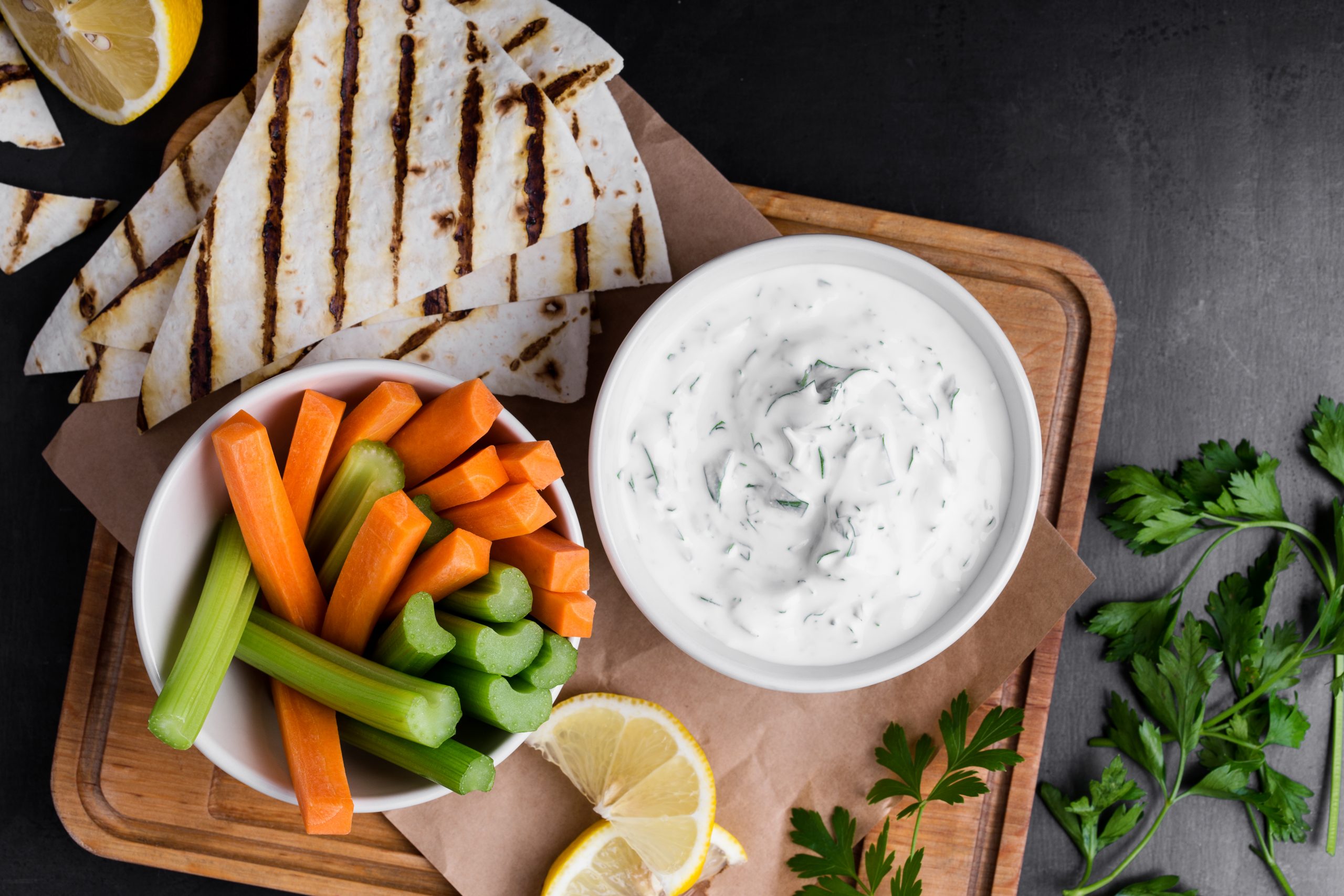
Orla Hugueniot, Public Health England nutritionist, says, "As we’re all at home more, it’s easy to reach for biscuits, cakes and chocolate throughout the day. Why not try veggie sticks, a piece of fruit, a small handful of nuts, popcorn, or malt loaf instead?"
Weight loss issue #11: You're still drinking fizzy drinks, even diet ones
Diet Coke might say that it doesn't have any calories on the tin, but that doesn't mean it's not packed with sugar-alternatives that are even worse.
PT Chloe says that cutting back on fizzy drinks is a sure fire way to add substance to a weight loss routine.
It's not just because of the aspartame and sugar replacements though, which have been proven to bind fat and make it harder to shed. A recent study led by Dr James Brown from Aston University has suggested that fizzy drinks can cause an increase in production of the hunger hormone ghrelin, which in turn increases weight gain.
Weight loss issue #12: Your daily activity levels aren't high enough
Walking for weight loss is one of the simplest ways to kick your diet into action, by helping you bring together what you eat with exercise.
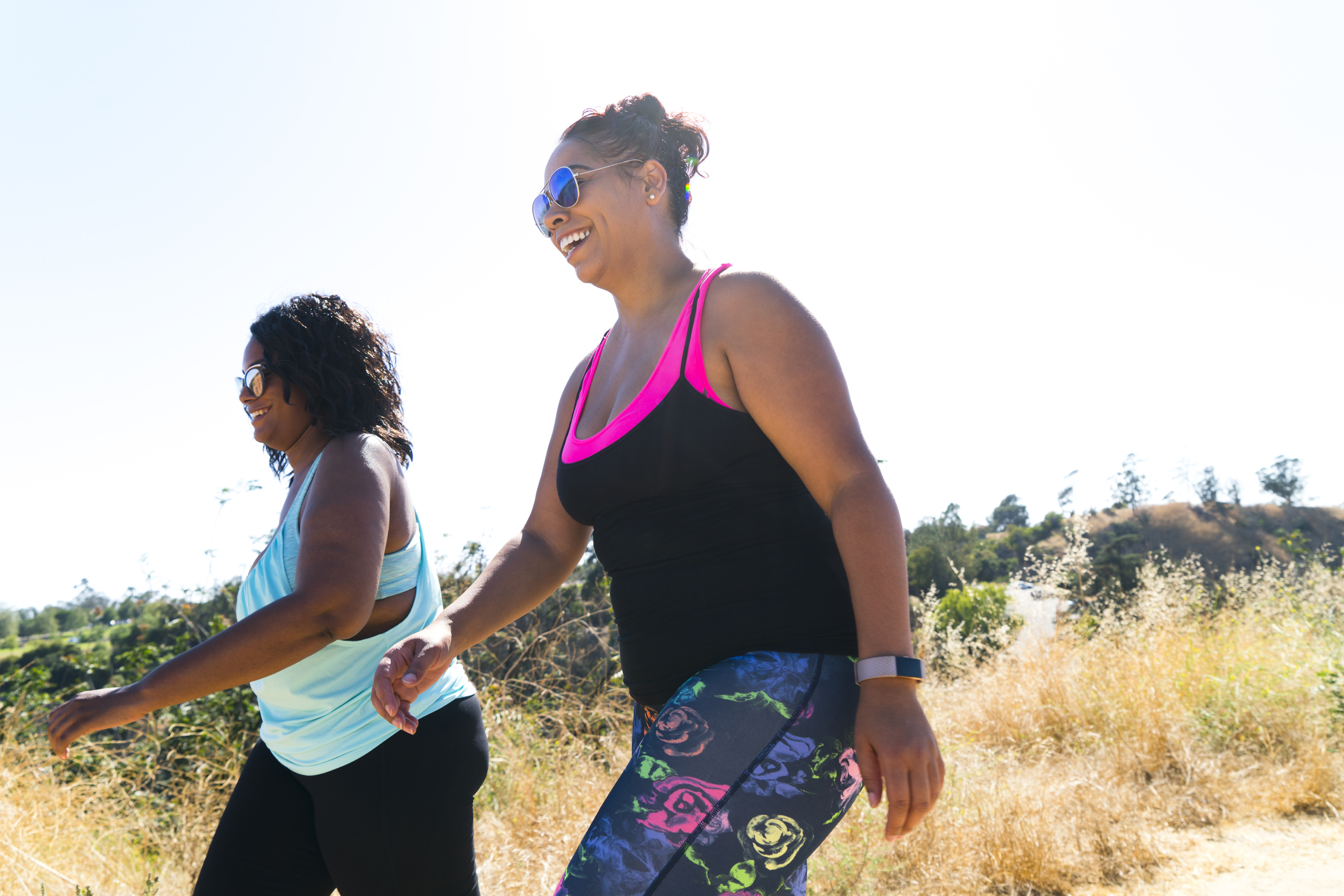
"When it comes to weight loss, focus on increasing energy expenditure," personal trainer Elliott Upton from Ultimate Performance explains. "If you want to lose weight, you need to increase your activity levels – and not just the 60 minutes you spend working out at the gym either. By this, we mean moving more and increasing the amount of activity you do during the whole day.
"So many people fall into the trap of thinking all they need to do is a quick hour session in the gym to lose weight. But if they’re sedentary for the other 23 hours in the day, their overall energy expenditure will still be pretty low. Your activity levels play a big part in whether you successfully lose weight or not."
He says, "One of the biggest weight loss tools that everyone overlooks is something called ‘non-exercise activity thermogenesis’ (NEAT). Put simply, this is the energy you use doing day-to-day activities that aren’t exercise – things like shopping, cleaning, walking and even fidgeting at your desk. It can be a game-changer where weight loss is concerned.
"Depending on how active you are throughout the day, NEAT can account for anywhere between 15-50% of your total energy expenditure throughout the day – and can be the difference between you being in calorie maintenance or calorie deficit. We always advise clients to aim for 10,000 steps per day and build in activities like walking to work, taking the stairs and carrying the shopping home to their routine which boost the calorie burn far more than a quick session in the gym.
"You can track this easily with a fitness watch or step counter on your phone."
Weight loss issue #13: You need to get more sleep
A lack of sleep has been associated with weight gain for years now. There's many reasons behind it but one of the main ones is that a lack of sleep correlates to an increase in appetite.

When we're hungry, the body releases two hormones called ghrelin and leptin. As noted with the previous study on rats, ghrelin promotes hunger but leptin also contributes to feeling full. Naturally throughout the day, these hormones increase and decrease. In turn, they signal the need to consume calories (ie. eat food), a study from the University of Chicago explains.
When we don't have enough sleep, the regulation of these hormones are significantly affected. This means that our appetite increases and we don't feel as full as we normally would.
Several studies have also suggested that a lack of sleep can change our food preferences. The University of California study says those who are deprived of sleep tend to choose foods that are high in calories and carbohydrates, which aren't bad at all, but need to consumed in moderation.
Weight loss issue #14: You need to eat more protein
Founder of the Fast 800 diet, Dr Michael Mosley says that protein is essential for weight loss and not eating enough of it could be a reason why we're not losing weight.
"This means regularly eating foods such as oily fish, seafood, chicken, red meat, eggs, tofu, beans, pulses, dairy and nuts," he says. "These foods have been shown to curb carbohydrate cravings and will help you to feel fuller for longer. Eating enough protein is important. You should also try to restrict your intake of processed meats such as sausages, bacon and salami."
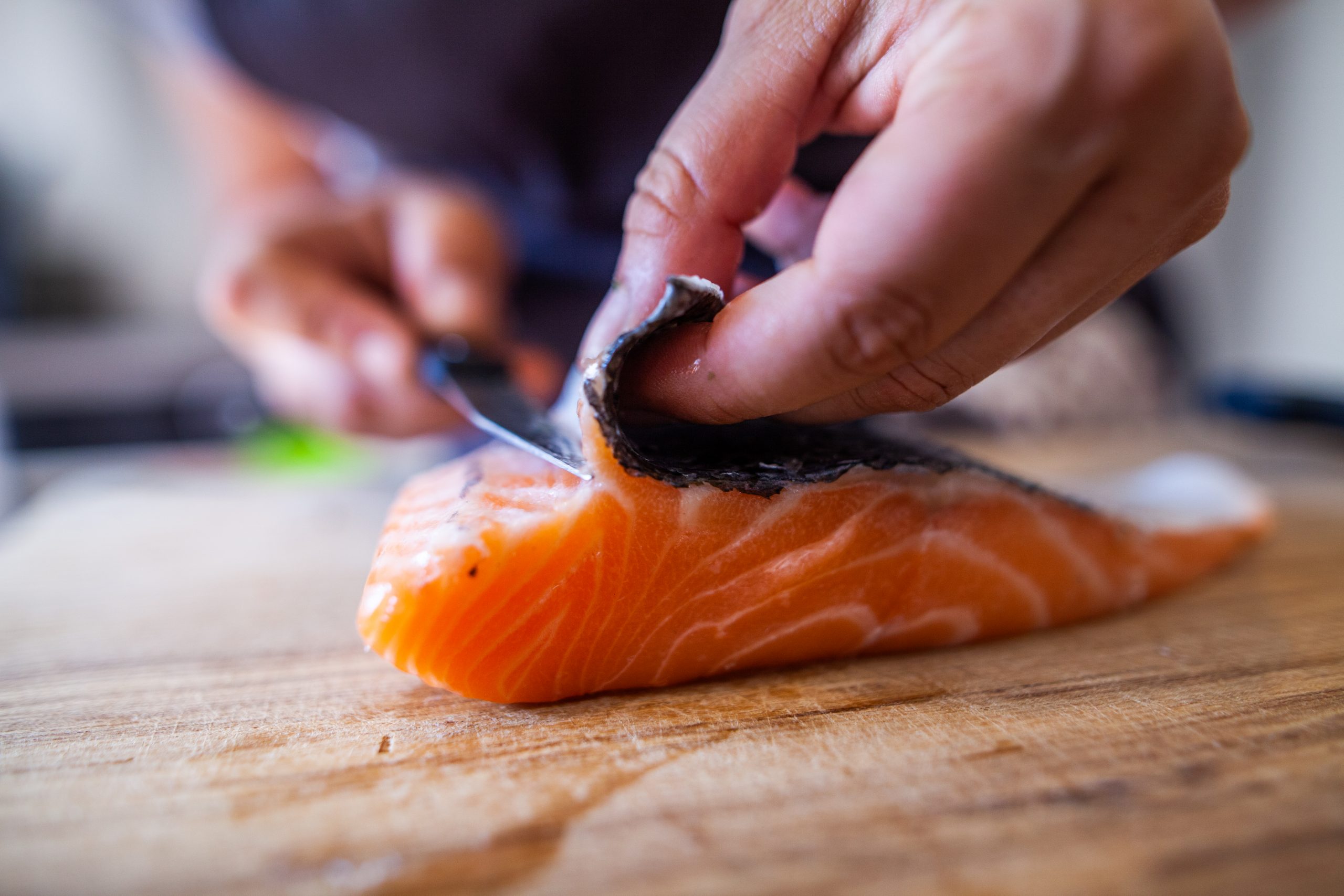
"A high protein diet can help you to feel more satisfied after meals. What’s more, the time of day that you eat protein also matters."
There's plenty of evidence to back this up too. "To test whether protein at the first meal of the day could help people to feel fuller for longer, a Yale University School of Medicine study in 2014 divided volunteers into three groups, explains Dr Mosley.
"One group ate a breakfast containing 35g of protein; the second group ate breakfast containing 13g protein; the third group, meanwhile, skipped breakfast altogether. Later on that morning, the volunteers were tested for levels of dopamine, the chemical that drives our reward circuits. They were also asked to rate the intensity of their pre-lunch food cravings.
"The results were clear: of all groups, the high-protein breakfast group recorded the highest dopamine levels and lowest pre-lunch food cravings."
He also suggests that the time of day you eat protein could be a contributor to healthy weight loss. "Eating protein at the first meal of the day helps you to feel fuller for longer because after a protein meal, levels of a chemical called tyrosine – a building-block for dopamine – rise inside the brain. By increasing its own dopamine supply as the next meal approaches, the brain experiences a much weaker dopamine hit from high-calorie food.
"This does not, of course, mean that you have to eat breakfast early in the day. For many, a midday ‘breakfast’ helps to extend the period of non-eating and so draws down the full benefits of fasting. But what it does mean is that when you do break your fast, eating a higher-protein meal will help to stave off sugar cravings later on."
Weight loss issue #15: You're drinking too much alcohol
Everything in moderation, personal trainer Chloe says. Drinking a bottle of wine in an evening certainly isn't advised, with an average calories count of over 600 calories per bottle, and some of us might be drinking more than we think. Especially in lockdown, where sometimes the only difference between a work day and an evening is a beer at 6pm.

Hangovers are also a winner for making you want to eat unhealthily through the day, as we all know. Common hangover cures have been given over the years as fried food, sugary drinks and a day in bed. While some of these might be effective at shedding the headache and funny tummy, they're not going help you lose weight.
However, the odd tipple or two a couple of days a week won't hurt your diet. It also plays into the idea of keeping up your routine, making sure you have long-term success. If you enjoy a beer, a glass of wine or a gin and tonic to celebrate the weekend for example, cutting this completely out of your diet could do more harm than good. You're less likely to feel motivated to keep up your diet and probably will end up calling it quits before the end of the month.
Weight loss issue #16: You're cutting out carbs
Diets like Atkins and the Dukan Diet call for carbs to be eliminated from our diets. But if you want to lose weight in the long-term, without cutting back on the foods you like, then carbs need to be an essential part of your diet.
Personal trainer Elliott explains how this works. "Eating a high-protein diet and resistance training will ensure we retain lean muscle during a transformation. The remaining split of your calories according to fat or carbohydrates doesn’t matter from a fat-loss perspective as long as a deficit is in place. But there are some caveats.
"If you have someone who is very overweight, they will likely benefit from a low-carb diet to start because:
1. They will get a big motivational boost from seeing the scale drop quickly as water leaves the body,
2. It will improve their insulin sensitivity along with the other changes you make,
3. It’s an easy way to take a number of calories out of the diet and still leave them feeling energised.
4. It cuts out a lot of the low-quality, nutrient-poor, calorie-dense foods that likely contributed to the original weight gain in the first place, e.g. cookies, sweets, bread."
Elliott says that carbohydrates can then be reintroduced back into the diet as and when needed for performances, as well as enjoyment, purposes.
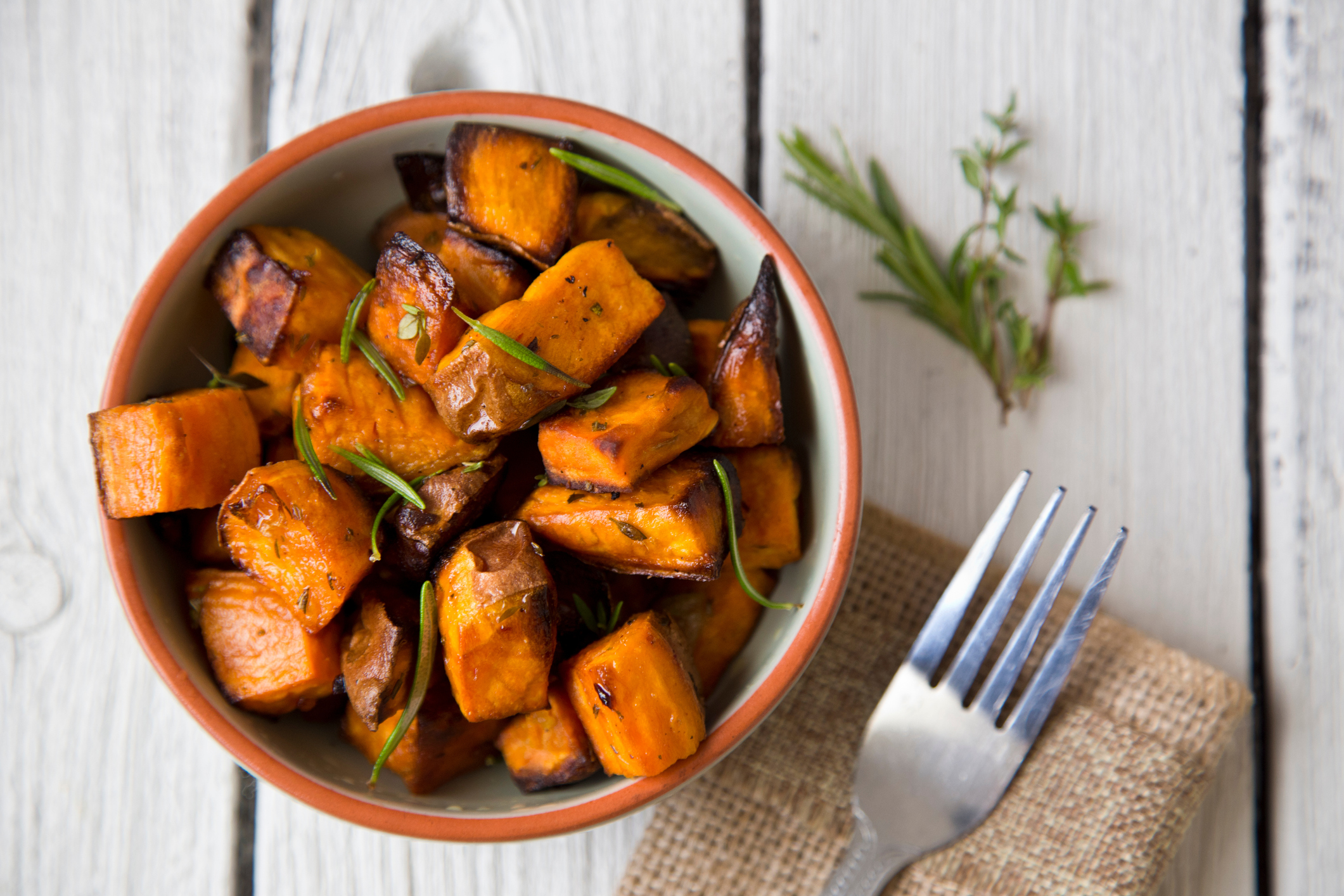
"It’s always best to avoid highly-processed sources of carbs in your diet (bread, pasta, cereal and baked goods). Focus on green vegetables and carb sources with a lower glycemic load (like sweet potato)."
He says, "Green vegetables are particularly good – firstly because they’re full of vitamins and minerals, but also because they’re very low calorie, so you can eat them in large quantities without pushing the calorie count up too high. The high fibre content of green vegetables like kale, spinach and broccoli aids digestion and helps keep you feeling fuller for longer.
"When it comes to reintroducing carbs back into your diet, we always advise adding in a small amount post-workout. And also in the final meal of the day (yes, carbs in the evening! Carbs promote the production of serotonin in the brain, which aids sleep)."
Weight loss issue #17: You need to meal prep
"Successful and sustainable weight loss comes from keeping on top of your diet," Elliott from Ultimate Performance says. "If you’re already tracking your calories and macros, something that will pretty much guarantee success is preparing your meals for the day well in advance.
"By having your meals measured and prepared ready for the day means you’re less likely to be caught short without a healthy meal, where it’s likely you will grab the nearest convenience food which often won’t benefit your weight loss goals."
Elliott says, "It’s so much harder to lose sight of your goals and eat something sub-optimal if you have all your healthy meals planned, prepped and ready to go when you’re hungry."
For anyone new to food prep, Elliott offers these simple tips:
- Buy your food in bulk. It’s more cost-effective and you can portion it out – whether that’s your protein, vegetable or bags of nuts.
- Batch cook your food. Find recipes you love and match your weight loss goals, and then cook a batch in one go so you can portion them out and freeze them for a later date. It will save you loads of time in the long run.
Weight loss issue #19: You have an undiagnosed health condition
There are a variety of medical conditions that could stop weight loss in its tracks. Either someone can't eat particular foods or they can't exercise properly, or the condition itself might be preventing weight loss.
One of the most common ones is an under-active thyroid, according to the NHS. This condition means that the thyroid gland isn't producing enough hormones, so the body's metabolism is slowing down. This in turn can lead to weight gain, which is one of the main symptoms of the condition.
Cushing's syndrome is another condition that could be preventing weight loss. It's very rare but it's caused by high levels of the cortisol hormone, as a result of long-term steroid treatment or the presence of a tumour. Weight gain is a very common symptom of the condition.

Polycystic ovary syndrome (PCOS) is another common one. It affects how the ovaries work and the main symptoms are irregular periods, issues getting pregnant, excess hair and weight gain. It's thought to be related to hormones and the production of too much insulin and testosterone.
The only way to be sure that an undiagnosed condition is the problem, however, is to visit your GP if you're struggling to lose weight.
Weight loss issue #19: You're taking certain medications
For example, weight gain is a side effect for people who have diabetes and manage it with insulin. While the insulin helps to control blood sugar levels, some people with long-term diabetes might eat more than they need to, in order to keep their blood sugar up.
Weight gain and struggling to lose weight is a very common side effect of many contraceptives as well, according to the NHS, so it's certainly worth looking into.
Much like undiagnosed medical conditions, particular medication can cause us to gain weight or stop us from losing weight.

What should I do if I can't lose weight?
If you still can't lose weight after tackling these issues, it might be time to speak to a professional.
The NHS recommends that you visit your GP, who will be able to address whether you have any underlying health conditions that could be stopping you from losing weight.
You could also reach out privately to a nutritionist or dietician. They can create a healthy and sustainable diet plan for you. A personal trainer would also help with any weight loss goals you have with a regime tailored just for you.
Why am I gaining weight even though I exercise?
It's likely you're not in a calorie deficit, PT Elliott explains.
"There is no way around it, calories count. In order to lose weight, you need to burn more calories than you consume," he says. "So many of us have a hard time losing weight because we’re simply consuming too many calories day to day."
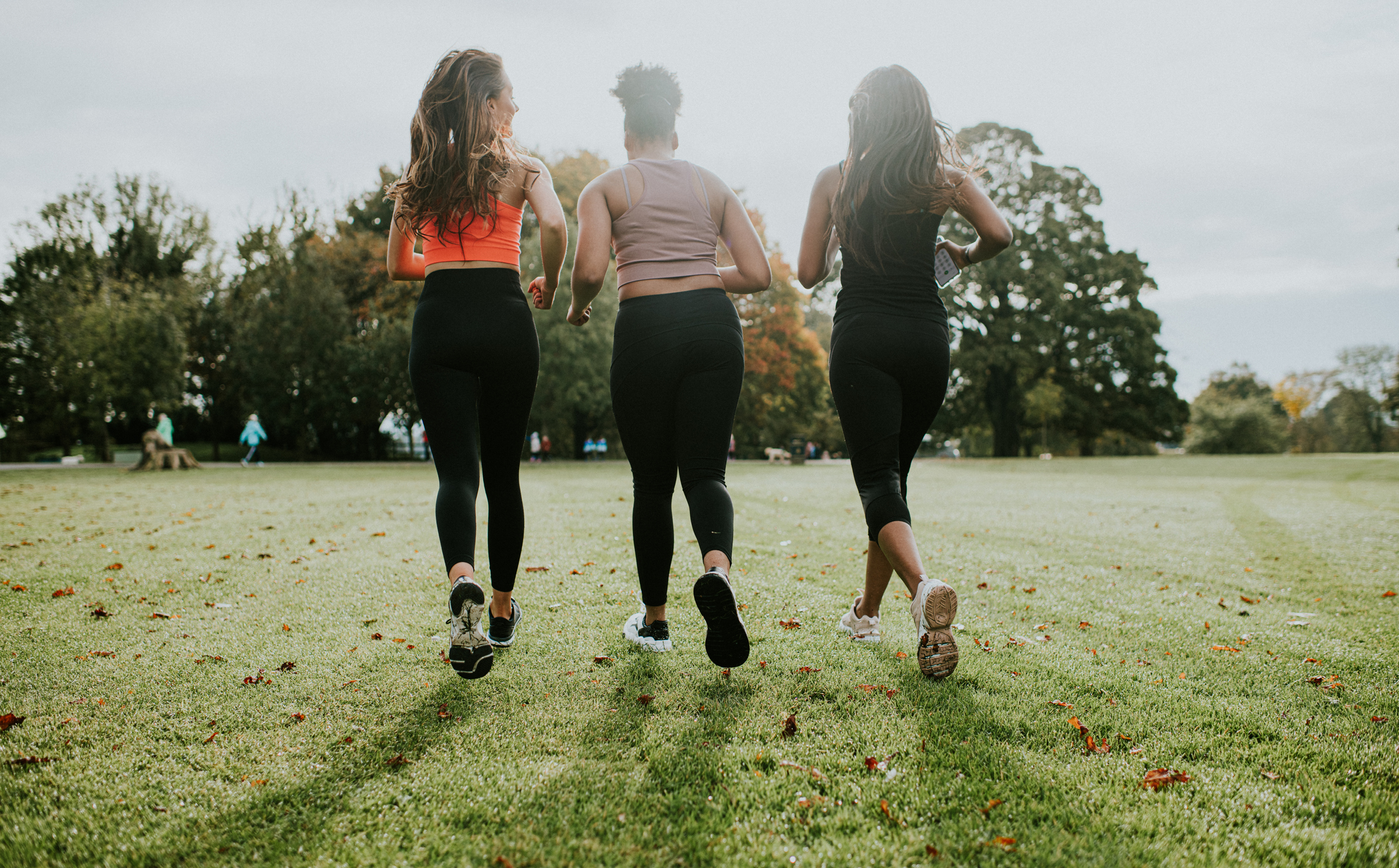
This means that if you're consuming more calories than you're burning, no matter how much exercise you do, you won't lose weight.
Why is my weight staying the same?
If you've lost some weight and are struggling to maintain the momentum, you might have hit a weight loss plateau.
This happens when weight loss stalls even though you're still exercising regularly and maintaining a calorie deficit, PT and founder of Jemma’s Health Hub Jemma Thomas says.
"Your body will stop metabolising fat as fast as it was when you first started. It gets used to the exercise you’re doing. It’s getting used to the calorie intake versus physical exercise."
When you first start to lose weight, there's normally a noticeable drop. This is because you've cut calories and the body is getting the energy it would normally get from the calories from its stores of glycogen, a type of carbohydrate.
Water predominantly makes up glycogen so when it's as an energy source, the water releases. This results in the quick, temporary weight loss that people see early on.
But as you shed the fat, you also lose muscle which keeps up the rate at which you burn calories. So when you lose weight, your metabolism slows down and causes you to burn fewer calories than you did before. This new, slower metabolism will mean that your weight loss progress slows down. Even if you're eating the same number of calories that helped you to initially lose weight.
A plateau is when the number of calories that you burn is the same as the number of calories you eat, Jemma says.
How do you overcome a weight loss plateau?
To overcome a weight loss plateau, you have to change up one of two things. Either the amount of exercise you do or the number of calories you eat.
To lose even more weight, you have to increase the amount of exercise you do so you burn more calories. Or you eat fewer calories, so that the number of calories you burn outweighs the number you're eating.
What can I do to boost my metabolism?
There are easy ways to speed up your metabolism, including growing more muscle.
But really, you don't actually have much control over your metabolism. You can control how many calories you eat and burn though, which is the major key to weight loss.
You might have heard people who lose weight quickly say they have a fast metabolism. But it's more likely that they are "just more active" or "maybe more fidgety", the NHS suggests.

Grace Walsh is a health and wellbeing writer, working across the subjects of family, relationships, and LGBT topics, as well as sleep and mental health. A digital journalist with over six years experience as a writer and editor for UK publications, Grace is currently Health Editor for womanandhome.com and has also worked with Cosmopolitan, Red, The i Paper, GoodtoKnow, and more. After graduating from the University of Warwick, she started her career writing about the complexities of sex and relationships, before combining personal hobbies with professional and writing about fitness.